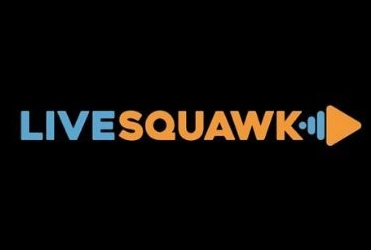Financial E-learning is home to an abundance of industry leading financial based courses. Simply scroll below to see the range of financial courses we have on offer.
Our regulated & accredited courses
Skillsfirst Accredited Course
All of the courses we offer through our partnership with Stellar Education are Skillsfirst accredited, so be rest assured that they are of the highest quality.
RQF Certification
Upon the completion of our courses, all students will receive an RQF certificate proving their accomplishments.


Application only
Due to the demand & significant opportunities our courses offer, all students wishing to enrol into one of our courses must first apply by completing a short multiple choice questionnaire.
Step 1
Scroll through the courses below & find the one that best suits your needs.
Step 2
Click the apply button displayed on your chosen course.
Step 3
Fill out the short questionnaire (60 seconds).
Step 4
Wait for an email from a member of the financial elearning team with a decision.
Step 5
If your application is successful, you will be sent enrolment instructions.
Managing your own money – Level 1 Award
The range of units contained in this qualification allow you to learn, develop and practise the financial skills required for life, without requiring or proving occupational competence. This qualification could also prove invaluable toward your own personal and career development. It has been designed to meet the needs of learners who wish to gain a knowledge and understanding of how to balance income and expenditure, how to save money and safe borrowing.
Ways to maintain personal wellbeing – Level 1 Award
This qualification has been developed for the widest range of learners possible: young people, students, and adults, those who are entering further or higher education or pre-employment, recently unemployed or between jobs. It has been designed to make learners aware of the principles of personal well-being and some of the ways of maintaining it. It also explores the impact of positive behaviour, healthy-eating, mindfulness and meditation on mental well-being. The range of modules contained in this qualification allow the learner to understand the need to make connections with others, to be physically active, receive continual learning and provide generosity and support to others. This qualification could also prove invaluable toward the learner’s personal and career development.
Explore
MODULE 1 – What is personal well-being?
Why is it important to look after our well-being? | What does mental well-being mean? | What is a mental health disorder?
MODULE 2 – What is anxiety?
MODULE 3 – What is Depression?
What are the signs and causes of depression
MODULE 4 – What is stress?
What are signs of stress
MODULE 5 – What is ADD / ADHD?
MODULE 6 – What is substance abuse?
How can substances harm us | How to stop taking a substance | What is an eating disorder – bulimia / Anorexia
MODULE 7 – What is healthy eating?
Why is a healthy diet important | Tips for Healthy cooking and eating
MODULE 8 – Who do we connect with?
What is a connection? | Why is it important to connect with people? | What happens if we don’t have connections?
MODULE 9 – What are daily physical activities?
What are the benefits of physical activity? | How much physical activity should I be doing? | Types of exercises for the mind
MODULE 10 – Mindfulness and meditation
What is meditation? | What is mindfulness? | Types of meditation that helps us become more mindful | Techniques to enable mindfulness
MODULE 11 – Understand need for continual learning
Importance of self-growth | Learning activities that contribute towards self-growth
£175.00
Managing personal finance – Level 1 Certificate
This course has been designed to meet the needs of learners who wish to gain a knowledge and understanding of the principles of saving and borrowing money, sources of income and expenditure, the need to manage income and expenditure, financial products and services, different forms of pay, how to budget and the use of credit.
The range of modules contained in this qualification allow you to learn, develop and practise the financial skills required for life, without requiring or proving occupational competence. This qualification could also prove invaluable toward your own personal and career development.
Explore
MODULE 1 – Introduction into personal finance
MODULE 2 – Credit cards, Loans, and debt
MODULE 3 – Savings, Mortgages and Pensions
MODULE 4 – Budgeting
MODULE 5 – Interest and Credit
MODULE 6 – Bank accounts | Bank statements
MODULE 7 – Payslips and taxes
MODULE 8 – Government benefits
£225.00
Cryptocurrencies (CPD)
With many people now involved in Cryptocurrency trading, we have developed an essentials course that aims to provide the learner with a greater understanding of Cryptocurrencies and how they operate within the current financial system. This course contains everything you need to know about Crypto, including Bitcoins, Ethereum, Blockchain, Mining, Nodes, ICO’s and basic charting materials.
With the rapid growth and volatility of the Cryptocurrency and digital currency, markets have captured the attention of individual investors, Governments, Regulators, Media, Financial Service Institutions, and businesses across the world. In such a new space, it can be difficult to make sense of the different Cryptocurrency out there and why they exist.
Explore
MODULE 1 – Introduction to cryptocurrencies
MODULE 2 – What are cryptocurrencies
MODULE 3 – Cryptocurrency Mining
Outcomes
- gain knowledge and a framework to understand cryptocurrencies
- learn how to use exchanges and wallets
- understand the mechanics of an ICO (Initial Coin Offering)
- understand the underlying theory and digital infrastructure behind crypto-assets and cryptocurrencies
£50.00
Introduction to personal finance – Level 2 Award
This Finance Essentials course tackles different elements of personal finance. Finance Essentials will help you to improve your finances by managing your money and getting better deals to make your money go further. A perfect start for all your personal finance needs, from opening a bank account to mortgages and pensions.
Explore
MODULE 1 – Introduction into personal finance
MODULE 2 – Credit cards, Loans, and debt
MODULE 3 – Savings, Mortgages and Pensions
MODULE 4 – Budgeting
MODULE 5 – Interest and Credit
MODULE 6 – Bank accounts | Bank statements
MODULE 7 – Payslips and taxes
MODULE 8 – Government benefits
£175.00
Diploma in financial trading – Level 3
This Level 3 Certificate in Financial Trading course gives you the skills that you need to start trading on the market or pursue a career within finance. Whether you want to increase your personal investment portfolio or develop your career within finance, this course will show you how to do it compliantly, effectively, and safely.
The area of financial trading covers a wide range of job roles. A Proprietary Trader buys and sells financial products on behalf of the bank that employs them, whilst a Flow Trader executes trades on behalf of their bank’s clients. A Sales Trader acts as a mediator between the client and the people who are responsible for executing the trades.
Explore
Principles of Financial Trading
Role of the Financial trader | Mutual Funds | Investment Banks | Institutional Investors | Market Makers | Arbitrage
What Are Financial Markets
Risk | Liquidity | Futures Markets | Spread Betting | CFD’s | Supply and Demand | Inflation | Fiscal Policy | Central Banks
Traded Financial Products
Trading Exchanges | Bond Markets | Price and Yield | Forex Markets | Currency trading between Banks | Commodities | Options | STIRS | Libor | Cryptocurrencies
Trading Patterns and Analysis
Trends | Charts | Market Profile | Support and Resistance | Fibonacci Numbers | Bollinger bands | Oscillators | Divergence | Moving Averages | Volume Indicators
Trading Financial Products
Types of Trading | Spreads/Hedging | Butterfly Spreads | GDP | Major Economic Indicators | Bond Auctions | Central bank Speeches | Daily Trading Sheet
Psychology
Market Psychology | Market sentiment | Crowd behaviour | Behavioural Finance | Market inefficiencies | Trader Psychology | Emotional intelligence | Trading emotions | Performance strategies | Trade execution
Financial Management
Investment Performance and Risk | Leverage | Margin | Self Employed Day Traders | Stopping Out | Business Tax | Stamp Duty | Transaction Tax | Financial Trading
Outcomes
- understand the role of a financial trader
- understand the operation of financial markets
- understand the operation of traded financial markets
- understand the psychology of market trading
£724.00
Diploma in financial trading – Level 5
Upon taking the Level 5 diploma in financial trading, the trainee will be introduced to the global financial futures markets and acquire a broad overview across a wide level of different futures trading strategies such as outright trading, spreads trading (including inter-exchange, intra-exchange, and inter-commodity spreads) and arbitrage used across the FX, Fixed Income, Equities and Commodities markets.
This course provides a combination of knowledge and performance-based units which cover the analysis of financial markets, the application of this analysis using different trading techniques and an understanding of financial products, such as shares, fixed-interest binds and foreign exchange markets and their associated risks.
Explore
Module 1 – Trading Introduction & Brief Overview
Financial Markets | Futures Markets | What is Technical Analysis? | Fundamental Analysis | Why Psychology? | The daily sheet philosophy
Module 2 – Financial Products
Bond Markets | Forex Markets | Commodity Markets | Options | STIRS | Indices | Cryptocurrencies
Module 3 – Economic Principles
Macroeconomics | Microeconomics | Major Central Banks | The OECD | Key US/UK/EURO indicators | Bond Auctions | Central Bank speeches | Trading individual stocks
Module 4 – Technical Analysis
Introduction to Technical Analysis | Trends | Bollinger bands | Fibonacci numbers | Moving averages | Market profile | The Process | Vacuums and distribution | Volatility time band | Range deviation and peaks | Support and resistance
Module 5 – Psychology
Market Psychology | Market sentiment | Crowd behaviour | Behavioural Finance | Market inefficiencies | Trader Psychology | Emotional intelligence | Trading emotions | Performance strategies | Trade execution
Module 6 – Risk & Money Management
Margins | Money Management | Leverage | Risk/Stop strategies | Risk Management | Financial Trading
Outcome
- understand the operation of financial markets and their analysis
- understand the fundamental analysis of market trading
- understand the technical analysis of market trading
- understand the psychology of market trading
£1987.00
What our clients say about us…

Ray Otto
"Financial eLearning has been instrumental in developing our staff's understanding of the global financial markets by creating an amazing bespoke learning package for us. We spoke with Martin, FeL’s director whose awareness and grasp of our requirements combined with his vast knowledge and experience of the financial markets and passion for education has made this a seamless and enjoyable experience"

Harry Daniels
"In an overcrowded space, Financial eLearning stands head and shoulders above its peers to provide a comprehensive and unique experience for its students through its bespoke offerings. The breadth and depth of the available courses can only come from industry experience and ‘know-how’ obtained from years working in and around financial products. Combine these attributes with the desire and determination to help educate and you have the complete package"

Lucius Freud
"I recently did the course on how to maintain personal well-being. I found the course very helpful and learnt a lot about the different types of ways our wellbeing can be maintained. The platform was easy to use and had clear information on what to do. Thank you."

Stacey Robertson
"I have attended more than half a dozen trading training courses over the last four years and spent from £500 to £5,000 per course. All of those courses were only presenting strategies that we had to follow, but without the opportunity to try them out live as the courses were conducted at weekends. To say that I have not learnt a few things from those courses would be incorrect, but in comparison to what I have learnt from Financial eLearning was phenomenal."

George Harrison
“The format of the course is clear, concise and has some great interactive sections. The click-a-long options allow students to go at their own speed and the handy exercises at the end prompt note taking and extra revision, which is brilliant. Full of step by step facts and easily readable text. From a tutor perspective I can work alongside the platform when checking the statistics and the progression of each student. It allows me to monitor this and support where necessary. Overall a great, simplistic and yet informative online course.”

Katie Prescott
“I recently did the course on how to maintain personal well-being. I found the course very helpful and learnt a lot about the different types of ways our wellbeing can be maintained. The platform was easy to use and had clear information on what to do. Thank you.”

Lucius Freud
“I have attended more than half a dozen trading training courses over the last four years and spent from £500 to £5,000 per course. All of those courses were only presenting strategies that we had to follow, but without the opportunity to try them out live as the courses were conducted at weekends. To say that I have not learnt a few things from those courses would be incorrect, but in comparison to what I have learnt from Financial eLearning was phenomenal. At last I have found a real course designed by experienced traders. This amazing course does not only teach you in depth the theory, but above all explains and demonstrates how to put it in practice. This allows you to learn how to trade the markets from the open to the close. If you are serious about becoming a trader, then this course is head-and-shoulders above the rest of the trading courses being offered to the retail traders.”

Stacey Robertson
“I had very little knowledge on what it meant to be a futures trader, but soon after joining the course it wasn’t long until I found myself immersed in the markets! Also, as someone with no background in trading or economics, I felt that the course accommodated for this with a level of teaching that was tailored for my needs. Overall, this experience has helped me turn my interest in trading into a reality.”
Our partners
We are fortunate to work with some of the biggest names in our industry.







 100% Accessibility
100% Accessibility